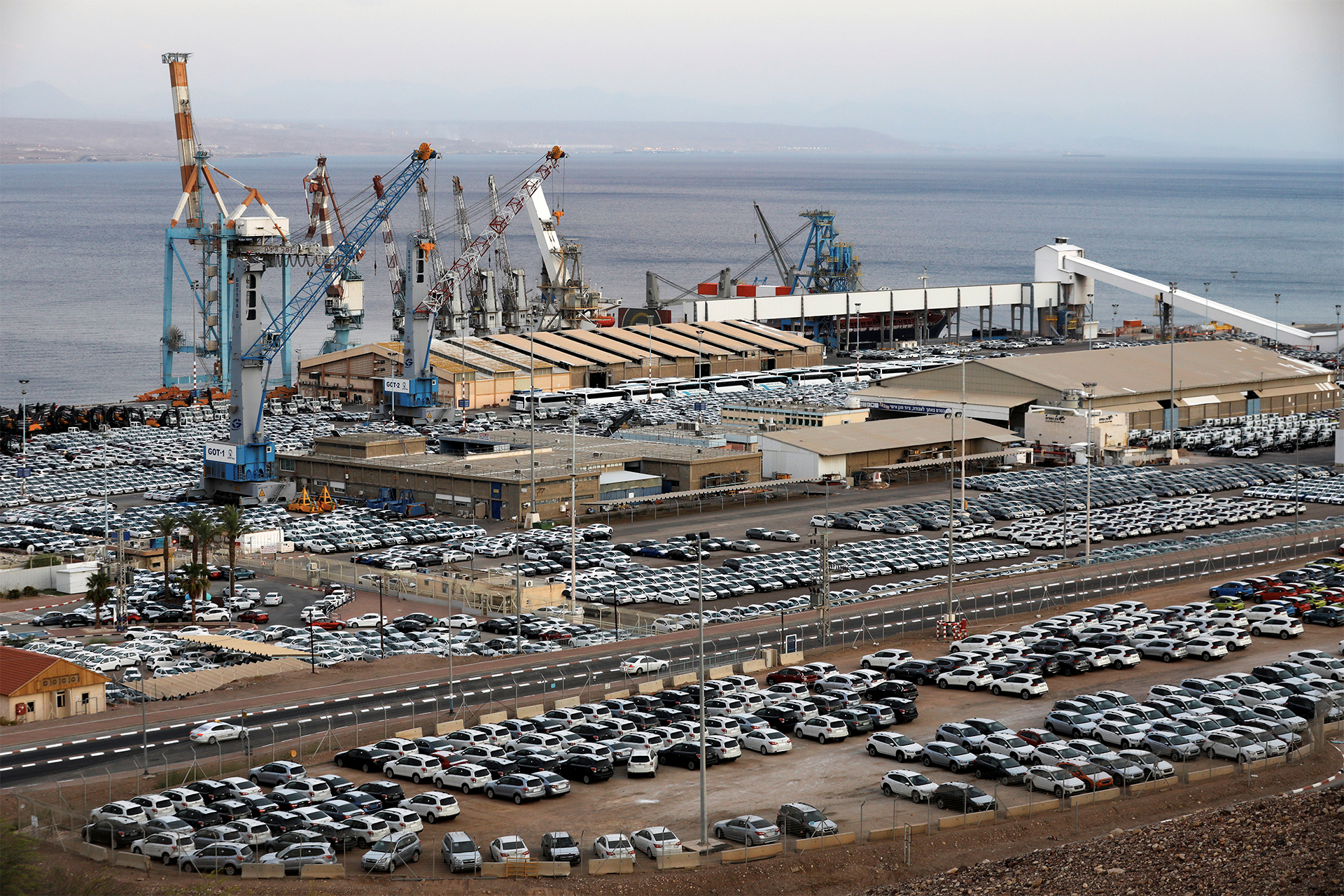The Israeli government launched a package of measures, including raising taxes and increasing utilities, to close the gap, which exceeded 33 billion shekels (Reuters)
In response to the large deficit in Israeli treasury revenues, which exceeded 33 billion shekels ($8.9 billion) against the backdrop of the war in Gaza, the Israeli government launched a package of measures, including raising taxes and increasing utilities, to fill the gap.
Analysts attribute this shortage to the expected decline in corporate and real estate tax revenues, in addition to the expected slowdown in private consumption. This leads to a decrease in value-added tax and import taxes, according to the specialized Israeli newspaper Globes.
Huge financial burdens
According to the newspaper, the Israeli government's strategy to address the revenue deficit involves imposing higher taxes and increasing the costs of basic services.
The prices of various goods and services, including electricity and fuel, have already seen significant increases, affecting families across Israel.
The newspaper adds that the government's reversal of previous decisions represents an additional challenge to the public, as gasoline prices rose after the government retracted the reduction of selective taxes that it had previously implemented.
This decision - which aims to compensate for revenue losses from the previous year - led to an increase in fuel prices to their highest level in 18 months.
At the same time, electricity prices rose by 2.6% on February 1, and the increase was attributed to factors such as the consumer price index, interest rates, and the development of the electricity sector.
Water prices also saw a recent increase of 0.7%, completing a two-year jump of 5.9%.
These increases - which are determined by a formula that includes production costs and various water sources - contribute to the overall financial pressure on Israeli families, according to the newspaper.
Local taxes rose by 2.7% in 2024, after rising by 1.4% in 2023. This upward trend is expected to continue until 2025, affecting the population due to agreements in the public sector and persistent inflation.
According to the newspaper, government health insurance costs are also set to rise, as the health insurance tax is expected to rise from 3.1% to 3.25% for the low-income group and from 5% to 5.15% for those with the highest income, which means imposing an additional income tax of 0.15% on salaries. .
The percentage of losses in some sectors of the Israeli economy reached 80%, especially the tourism sector (Getty)
With all this increase, the Israeli government decided to postpone what the Globes newspaper called the most important “economic blow,” which is increasing the value-added tax from 17% to 18%, until 2025, to avoid raising the rates of population discontent to undesirable levels.
According to figures seen by Globes, these current tax increases and amendments are insufficient to cover the widening gap in state revenues.
The Ministry of Finance's revised forecasts for 2024 indicate a decrease in revenues, amounting to 417.4 billion shekels, compared to 450.4 billion shekels in initial expectations.
As the government struggles to confront a deep fiscal gap, the looming value-added tax increase in 2025 is seen as a crucial source of revenue, and is expected to generate NIS 7.5 billion, according to forecasts.
Israel is suffering continuous losses as a result of the aggression it launches against the Gaza Strip. The expected losses, according to governmental and non-governmental sources, range between 100 and 125 billion dollars, as direct and indirect losses. Most of these losses are related to increased military spending in the war.
While the Israeli economy finds itself in an unprecedented predicament, the percentage of losses in some sectors has reached 80%, especially the tourism sector.
Source: Israeli press

